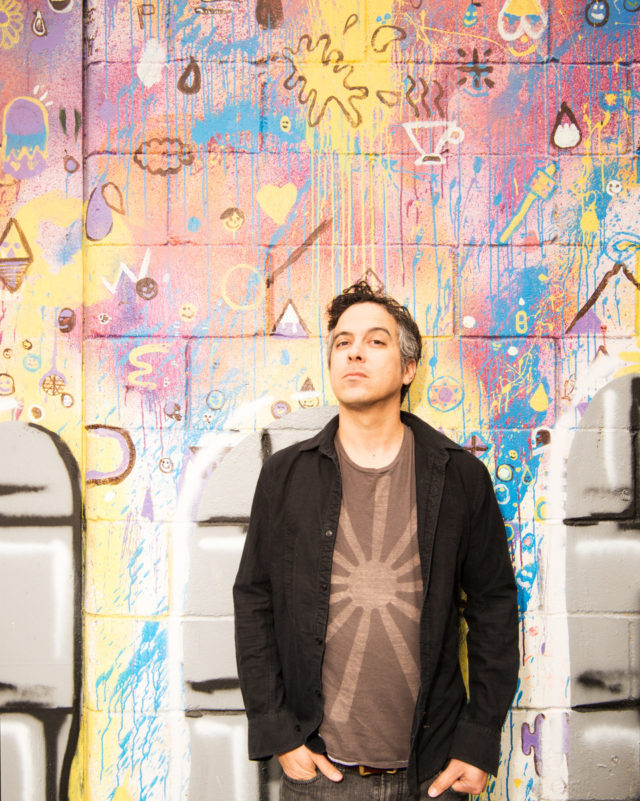
One late night last year M. Ward dreamt he was sitting in a smoky blues club watching Chuck Berry perform on the stage. In between songs, Berry walked out into the audience and reached out to pick up a newborn baby and, with the infant in his arms, he began to sing, “everything is old in the world except for the baby.”
M. Ward turned this moment into the song “Little Baby,” included on his latest album from 2016, More Rain. It goes:
“And nothing’s sun isn’t seen/ Except for the baby Little baby, ah little baby/And I say child, be my teacher/ Would ya’ could ya’ baby yeah/ Little baby, ah little baby/And everyone is too big to cry/ Except for the baby/Little baby, ah little baby/And everyone knows how to lie/ Except for the baby/ Little baby, ah little baby…
“So I said talk to me baby, talk to me baby, talk to me baby, talk to me baby, tell me everything’s alright.”
These days, and this week in particular, it’s hard to not think about music without also confronting our own mortality — whether it’s festivals penetrated by the murderous spray of bullets or the death of musical idols like Tom Petty. It isn’t just the material of music that’s housing our biggest questions and fears, but the phenomenon of music’s indelible relationship with the arc of our lives throughout history.
When I spoke with Ward two weeks ago, we didn’t know of the events to come and found ourselves talking instead about his then upcoming birthday on Oct. 4. “Forty-three going on 44, or something like that.” I’d caught Ward suspended in a moment of reflection.
His birthday brought him to thinking about the patience he has learned over the years, with respect both to dealing with life’s endless churning and also to music-making itself. It’s not that he was ever impatient (listen to the cadence and tone of his voice for just a few seconds and this is readily apparent). It’s more that Ward used to react to the world and now he finds himself yielding instead.
“I notice that these days I allow things to mature on their own as opposed to trying to force a square peg into a round hole,” Ward says. “A lot of times the passage of time will show me that something belongs or, the other way around, that something doesn’t belong. Time is really the only thing capable of revealing those nuances, and it took me some time to learn that.”
Over the course of his life, Ward has developed a process that seems to encapsulate that wisdom, one that’s almost archaeological in that it expresses the moment by studying the material remains of the past. He literally ransacks the annals of his mind, sifting through his memories and old recordings like rummaging through a shoebox full of mementos, pulling out the bits that catch his attention and using them as fodder for his songs.
Lately he’s been back at work on a new album, the shape of which is yet to be determined. So, instead of sculpting it arbitrarily, he headed back to a place that would naturally lend it form: in his attic studio, the one that he built for himself back in 2003 to record Transfiguration of Vincent, an early work that was raw and personal.
Although the process of songwriting is always somewhat mysterious, Ward grounds it in an analog methodology. He does it inch-by-inch, recording directly onto tape that he’ll later go back and rework, digging around for nuggets he likes best and bringing them to the surface. Of course, recording this way comes with technical constraints, ones that Ward says “forces you to leave the string section at home.” But it’s worth it to him because it forces him into a sparseness that calls upon the patience he has learned.
The result is Ward’s characteristic sound, as spooky as it is nostalgic. It’s a sound that’s not just familiar to his fans, but to all of us, reminiscent as it is of the sound of our thoughts as they bounce and echo inside of our heads.
“Both happiness and sadness are great windows into the dark side of life and the bright side of life,” Ward says. “I think the deeper you can get into those emotions the more images you have to play with and then, and only then, you can build a direct relationship to major chords and minor chords and sevenths and all the variations in between.
“All of it, the evil and the good, life and death, gets to exist within one song. That’s what keeps me interested in music and what, even at 43 going on 44, keeps me making records.”
On the Bill: M. Ward with Whispertown. 9 p.m. Friday, Oct. 13, Fox Theatre, 1135 13th St., Boulder. Tickets are $25.














